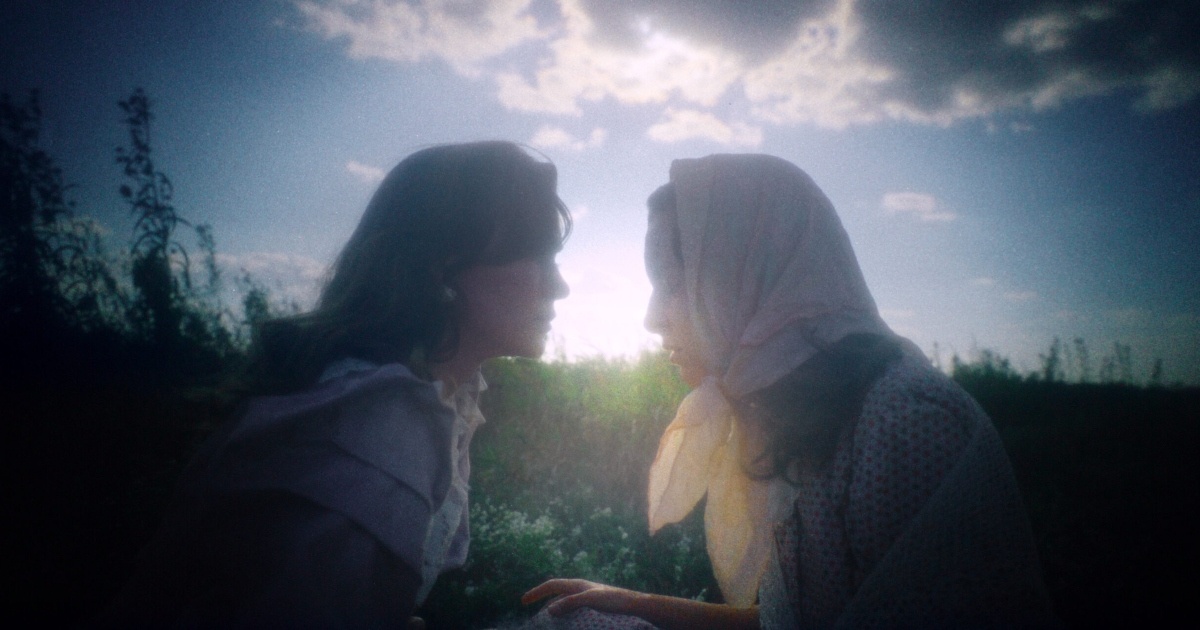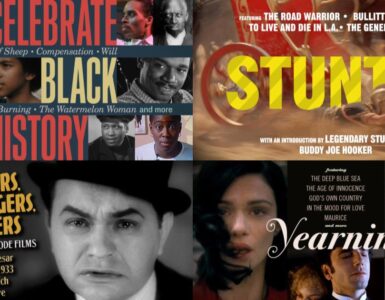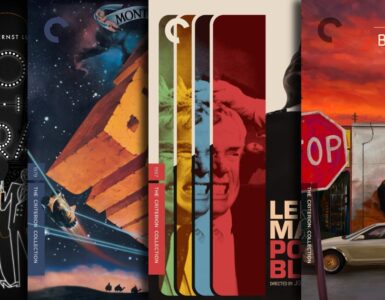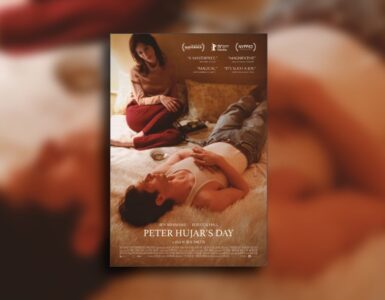
Heading into its 13th year, First Look is the much lauded annual festival wherein the latest and greatest in global independent/experimental cinema gets its nearly week-long moment in the sun.
As this year’s festival is set to begin on March 13 (and concluding on the 17th), New York and the Museum of the Moving Image are slated to play host to various premieres (both of the feature and short length variety), numerous work-in-progress pieces and even gallery installations, all highlighting some truly groundbreaking new voices within the art film space. With 46 premieres among this year’s lineup, it may be a bit difficult to wrap one’s head around such a diverse lineup. That’s where we come in. Here are just a few highlights from what is one of the festival’s best lineups yet.
Besides the two real headliners here (opening night’s incredible Sujo from directors Astrid Rondero and Fernanda Valdez, of which I’ll be writing about at a later date, and Bill and Turner Ross’ Gasoline Rainbow which I sadly wasn’t able to see prior to the festival), one of the more hotly anticipated feature efforts just so happens to be one of the festival’s more exciting. Entitled An Evening Song (for Three Voices), the film comes from director Graham Swon, and tells the story of a married couple, their housekeeper, and the romance that begins to grow among them.
Set in 1939 and carrying with it a distinctly Gothic sensibility, the film both feels entirely of the period in setting and production design, the most striking aspect of this film is its gorgeous and quietly haunting cinematography. Starring Hannah Gross, Peter Vack and the one and only Deragh Campbell as the central writer couple and their housekeeper respectively, An Evening Song is a story of a burgeoning love triangle that is elevated by impressionistic direction and dream-like photography. This is partly due to a process of projecting images onto glass and then shooting that reflection digitally, all making for a film that feels truly unlike anything you’ve ever seen. Campbell is incredible here, as per usual, giving a subtle performance that, when set against such a melodramatic narrative, only enhances the very literary energy at the core of the film. Vack and Gross aren’t performers to forget either, as their relationship not only feels of a piece with the Gothic aesthetic, but holds much of the film’s crackerjack tension. A one of a kind piece of work, not to be missed.
Continuing in the feature lineup, one of the festival’s better works is also maybe its strongest debuts. The first feature from director Haley Elizabeth Anderson, Tendaberry stars Kota Johan as Dakota, a woman who is not only dealing with the daily trappings of being a twenty-something in New York, but also a profound existential crisis. As she begins falling for Yuri (Yuri Pleskun), a Ukranian who returns home after news of a his father falling ill hits his doorstep. After the Russian invasion of Ukraine takes hold, their relationship is permanently threatened, and we watch as Dakota deals with life as a young woman on her own in NYC.
One of First Look’s more kinetic features, there’s an emotional rawness here that feels entirely of its own. Interlacing footage from videographer Nelson Sullivan’s own video diary, Tendaberry has a decidedly dynamic energy to it. That same energy is made manifest by the performance at its core, with Johan giving one of the great performances yet in 2024. It’s a raw performance, yet carries with it such profound humanity because each frame seems ripped right out of the moment we’re living. Maybe that’s due to the fly on the wall aesthetic or the fascinating use of archival footage, but it is in no small part due to Johan’s textured and physical performance. A film very much about the passage of time, or at least the interplay between the past and the present, Haley Elizabeth Anderson’s Tendaberry is a striking document of one woman’s coming of age and the loneliness that can come with that. Truly a special, incomparable debut feature.
As with any good festival of this sort, the name Kevin Jerome Everson will likely be seen on the lineup. Here, not only is it featured, but one could argue he’s sort of the star of this year’s shorts selection. Three shorts of his are featured here, all of which continue to prove that he’s one of the great filmmakers of his time.
First up is Banging On Their Bars In Rhythm, which is set inside the Ohio State Reformatory in Mansfield, Ohio. A location that’s been on the director’s mind recently, with shorts like last year’s stunning Air Force Two making the most of its dystopian energy. The black and white photography that’s so synonymous with Everson’s work is on full display here, turning the short into a haunting rumination on the prison system. Next is Hazel (dual), which finds musician Ricky Goldman taking on the work of Funkadelic guitarist Eddie Hazel, more specifically both the lead and rhythm parts of the groups legendary “Maggot Brain.” What results here is a rapturous 12 minute short, a film that finds Everson working in an arguably less political arena, instead finding him and Goldman on the hunt for that moment of true artistic freedom.
Finally, rounding out this trio is West Lounge. Ostensibly the retelling of a violent event in Columbus, Mississippi as given by an unreliable narrator, the film pairs this narration with color footage from the areas in question. Everson flexes his directorial style here, giving the proceedings a decidedly cinematic feel to them. Not that he’s not absolutely one of the more ambitious documentarians of his ilk, but with dream-like photography and some small directorial flourishes, the film carries with it an almost fiction-like energy to it. At just a pinch over 5 minutes, this may not be the director’s most ambitious work, but it’s certainly a welcome change of pace for one of cinema’s most ambitious directors.
Closing out this preview, we’ve saved arguably the best for last. Directed by Red Moon Tide helmer Lois Patino, Samsara first introduces viewers to Amid, a young man who spends his days aiding an elderly women as she nears her final days. He befriends a rookie monk named Bee An, and from there the film’s elliptical style gives way to a profoundly thoughtful rumination on life and death that feels strangely in conversation with films like those from director Apichatpong Weerasethakul. In the second half, the film heads to Zanzibar, and follows a girl named Juwairiya as she wakes up one morning to find that a goat her family owns has given birth.
Carrying with it a profoundly hypnotic energy, the film feels less like two separate whole stories than one larger conversation about the human experience between one’s birth and ones passing. A deeply sensorial picture, the film is startlingly immersive, both in its gorgeous, otherworldly photography and especially in its stunning sound design. Very much a religious odyssey that only cinema truly can provide, the film’s two halves are split by a stunning sequence of sound and color that glance squarely at the film’s, and its director’s, focus on the journey one takes from the start of one’s life to their end. Shot on awe-inspiring 16mm by Mauro Herce and Jessica Sarah Rinland, the saturated colors only help amplify what is inarguably one of the great films of this or any recent year. A film not to be missed.





